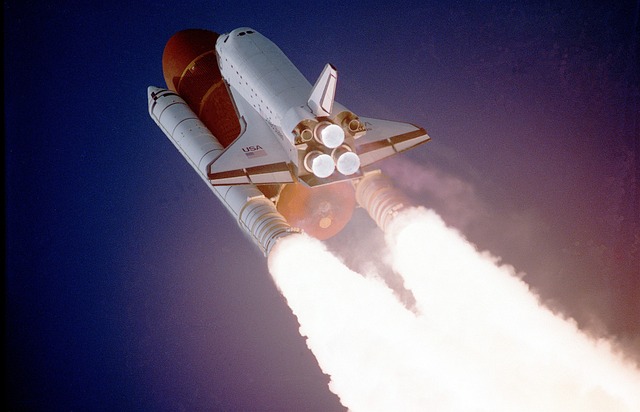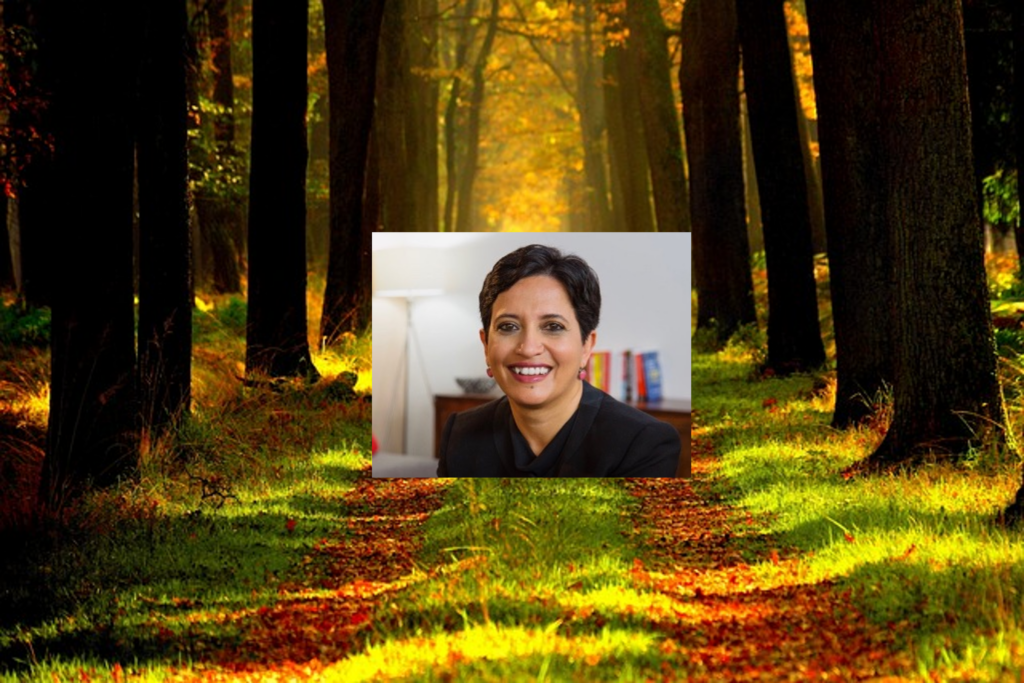Entrepreneur Journeys
The Startup Velocity Question: What Hinders Acceleration in VC Funded Companies?

I have been running 1Mby1M since 2010. I find myself saying to entrepreneurs ad nauseam that VCs want to invest in startups that can go from zero to $100 million in revenue in 5 to 7 years.
Startups that do not have what it takes to achieve velocity should not be venture funded.
Experienced VCs, over time, have developed heuristics to gauge what constitutes a high growth venture investment thesis.
>>>1Mby1M Udemy Courses with Sramana Mitra: Bootstrapping

Over the course of two years, we have released over 70 courses on Udemy with the aim to democratize entrepreneurship education at scale globally. This series of posts aims to help you find the one you need easily and provide you with discount coupons.
>>>Aiming to Dominate Real Estate Brokerage: Robert Reffkin, CEO of Urban Compass (Part 1)
Urban Compass is trying to disrupt the real estate industry with a tech-savvy brokerage model. They have raised $70 million and are currently valued at $360 million based on the last funding round. Listen to Robert Reffkin explain why he thinks the company will dominate the industry.
Sramana Mitra: Let’s start at the beginning of your journey. Where are you from? Where were you born and raised, and in what kind of background?
Robert Reffkin: I’m from Berkeley, California. My mom is an Israeli and my father was African-American. I grew up in a mixed race household with a single mother. When I was younger, I went to an entrepreneurship program called the National Foundation for Teaching Entrepreneurship. It helped me create a disk jockey business in high school. I was actually a DJ in high school and college, which paid for school. It was the foundation of a lot of the entrepreneurial drive that has carried me since I graduated from college.
Featured Videos
Can 1M/1M Help Me Raise Money?
How Does 1M/1M Democratize Entrepreneurship Education?
How Does 1M/1M Democratize Management Consulting?
When Is The Right Time To Join 1M/1M?
Can 1M/1M Help Me With Business Development?
Can 1M/1M Help Me With Market Sizing?
Can 1M/1M Help Me Validate My Product?
Will I Have Private 1-on-1 Sessions In 1M/1M?
How Does 1M/1M Help Entrepreneurs Connect With Silicon Valley?
Mentoring or Consulting?
Why Does 1M/1M Charge $1000 a Year?
Why Does 1M/1M Partner With Local Organizations?
Why Don\’t Mentoring Networks Work?
Why Is It Important To Study With 1M/1M Now?
Dan Stewart Story
Vikrant Mathur Story
Building an Exciting Healthcare IT Company From Chicago: LaunchPoint CEO Terry Ryan (Part 1)
At the cusp of three major trends, Big Data, Cloud Computing, and Healthcare IT, Terry Ryan is building a very interesting company from Chicago. The company is profitable, already of substantial scale, and at a very exciting juncture.
Sramana Mitra: Let’s start at the very beginning of your journeys. Where are you from? Where were you born, raised, and in what kind of background? Give us some back story.
Terry Ryan: I was born and raised in the Midwest in the suburbs of Chicago. I spent most of my time in the Midwest, but I’ve also lived around the world including Europe. I’ve done business across most of the continents, but Chicago is home.
Sramana Mitra: What did you do for college? What’s your educational background?
>>>
Building a Secondary Ticketing Business From Spain: Ander Michelena, CEO of Ticketbis (Part 1)
Spain’s economy has been devastated, and it is really up to entrepreneurs to build it back to health. Anders Michelena is doing his part.
Sramana Mitra: Let’s start at the very beginning of your personal story. Where are you from? Where were you born, raised, and in what kind of circumstances?
Ander Michelena: I was born in northern Spain. I moved to Madrid when I was 12. I studied in a French school. I then studied at one of the biggest economic universities in Spain for my bachelor’s degree. It was a five-year program of which I spent a year at Marquette University, Milwaukee. That is where I met my wife.
Bootstrapping to $10 Million from Canada: Jory Lamb, CEO of VistaVu (Part 1)
Jory Lamb started as an entrepreneur as a 23-year old in rural Canada. Read his 18-year journey.
Sramana Mitra: Let’s start at the very beginning of your story. Where are you from? Where were you born, raised, and in what kind of background?
Jory Lamb: I grew up in Saskatchewan, Canada. I was also born there. My dad was a schoolteacher and my mom ran local food stores called Red Roosters. We used to own three Red Roosters, which would be the equivalent of 7-11 stores in the late 70s to the mid 80s. I went on to the University of Saskatchewan and graduated with a business degree.
Bootstrapping Using Services: Robin Wiener, CEO of Get Real Health (Part 1)
Robin has built an excellent company with large, international clients in the healthcare domain and has used the bootstrapping using services technique that we espouse in 1Mby1M.
Sramana Mitra: Let’s go to the beginning of your story. Where are you from? Where were you born and raised, and in what kind of circumstances?
Robin Wiener: I’m from Connecticut. I was born in Bristol, the home of ESPN. I went to the University of Connecticut for college. Early on, I had a major speech problem. I couldn’t really pronounce things. Along with that, I had a major learning disability. I had two sisters and a brother. The teachers told my parents that I just wasn’t as smart as my brothers and sisters. Maybe I could get married and that would be a good thing for me to do. >>>
Bootstrapping Using Services from London: Ajay Patel, CEO of HighQ (Part 1)
Continuing with our Bootstrapping Using Services theme, we bring you a story from London.
Sramana Mitra: Let’s start with some back story. Where are you from? Where were you born and raised? What kind of background?
Ajay Patel: I was born in London about 42 years ago. I’ve lived here all my life. My origins are actually Indian. My father is from India and my mother was born in Fiji, but she’s of Indian descent.
Sramana Mitra: What about school? I imagine you went to school in London.
Building Large Scale Enterprise Software Companies: Louis Tetu, Founder of Taleo, CEO of Coveo (Part 1)
This interview gives us an opportunity to speak with a seasoned enterprise software entrepreneur who has founded and scaled a number of companies, including Taleo that went public, and was eventually acquired by Oracle for $1.9 billion.
Sramana Mitra: Let’s start at the beginning of your personal story. Where are you from? Where were you born and raised, and in what kind of background?
Louis Tetu: I’m French-Canadian. I was born and raised in Quebec, Canada. I live there with my wife and three children and that is where we started several software companies, including Taleo and Coveo.
Sramana Mitra: Let’s start with a little more context. What did you do in terms of education?
>>>
Building a Global Education SaaS Company From India: WizIQ CEO Harman Singh (Part 1)
If you haven’t already, please study our Bootstrapping Course and Investor Introductions page.
Harman Singh has put up a heroic effort to build a global education SaaS company from Chandigarh, India. Now, many years since his journey began, the company has started finding its stride. As the cliché goes, it’s a marathon, not a sprint!
Sramana Mitra: Let’s start at the beginning of your story. Where are you from? Where were you born and raised, and in what kind of circumstances?
Harman Singh: I was born and raised in a small town in North India, which was known as the Manchester of India because of its small manufacturing businesses. My father was one of those small business owners manufacturing electrical goods during the >>>
Bootstrapping With A Paycheck From Atlanta: Ingenious Med Founder Steve Liu (Part 1)
We just launched out Bootstrapping With A Paycheck book, the 11th volume in the Entrepreneur Journeys series. Here’s yet another instance of a very successful company being built in this mode.
Sramana Mitra: Let’s start at the beginning of your story. Where are you from? Where were you born and raised, and in what kind of circumstances?
Steve Liu: I was born in the United States. I was born in DC and lived in Virginia my whole life. My parents were immigrants but not your typical immigrants. My father came to UVA for his undergraduate studies. I grew up pretty typical with Asian parents. I’m sure you know what I’m talking about.
Building a Healthcare IT Company out of Georgia: Reach Health Founder Grant Kohler (Part 1)
Spun out from university research, Reach Health is an interesting case study in building a company around concepts like Telemedicine and remote healthcare.
Sramana Mitra: Steve and Grant, I would love to have your back stories. Where were you born and raised, and in what kind of circumstances? What paths did you follow in terms of college and so forth? How did your paths intersect?
